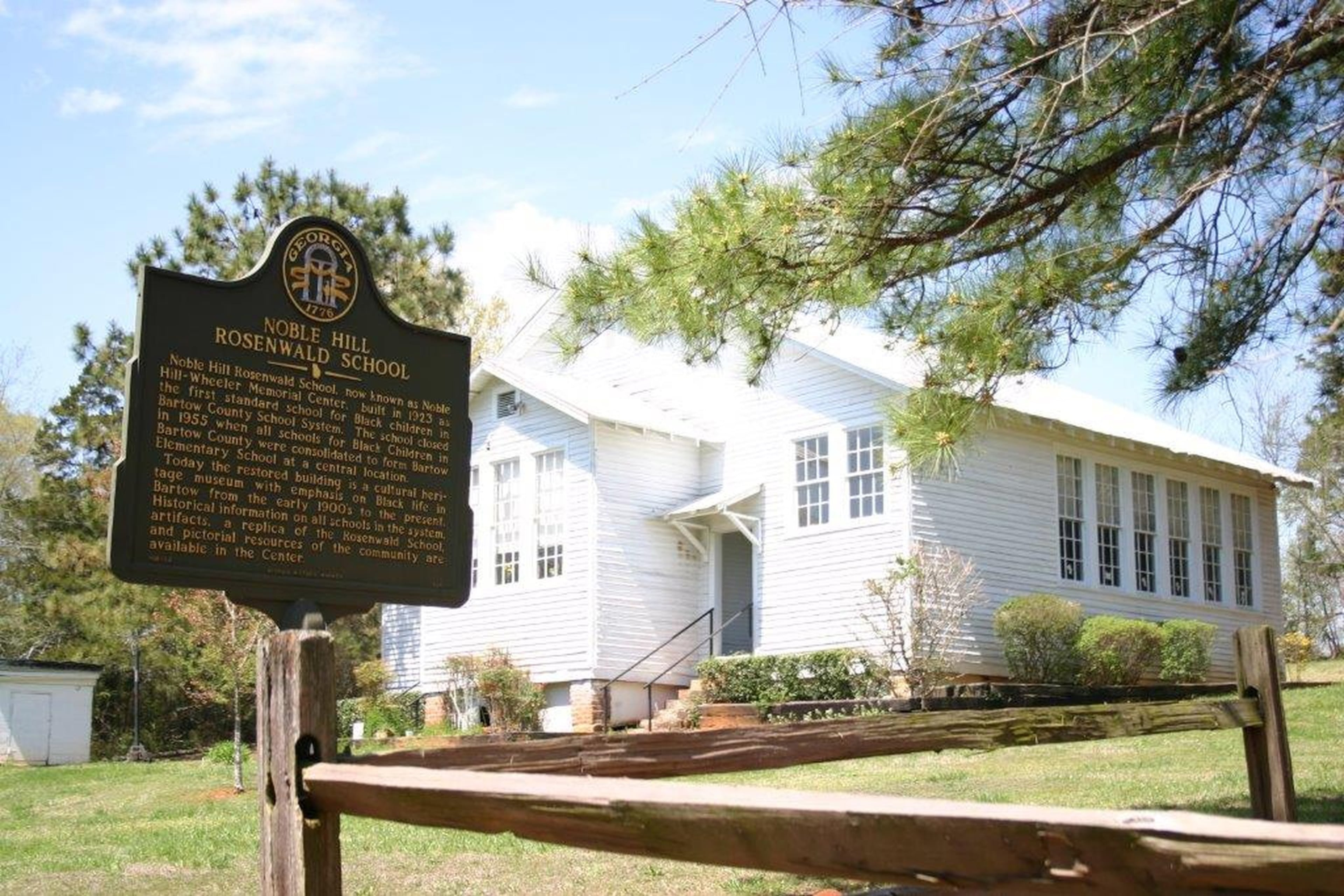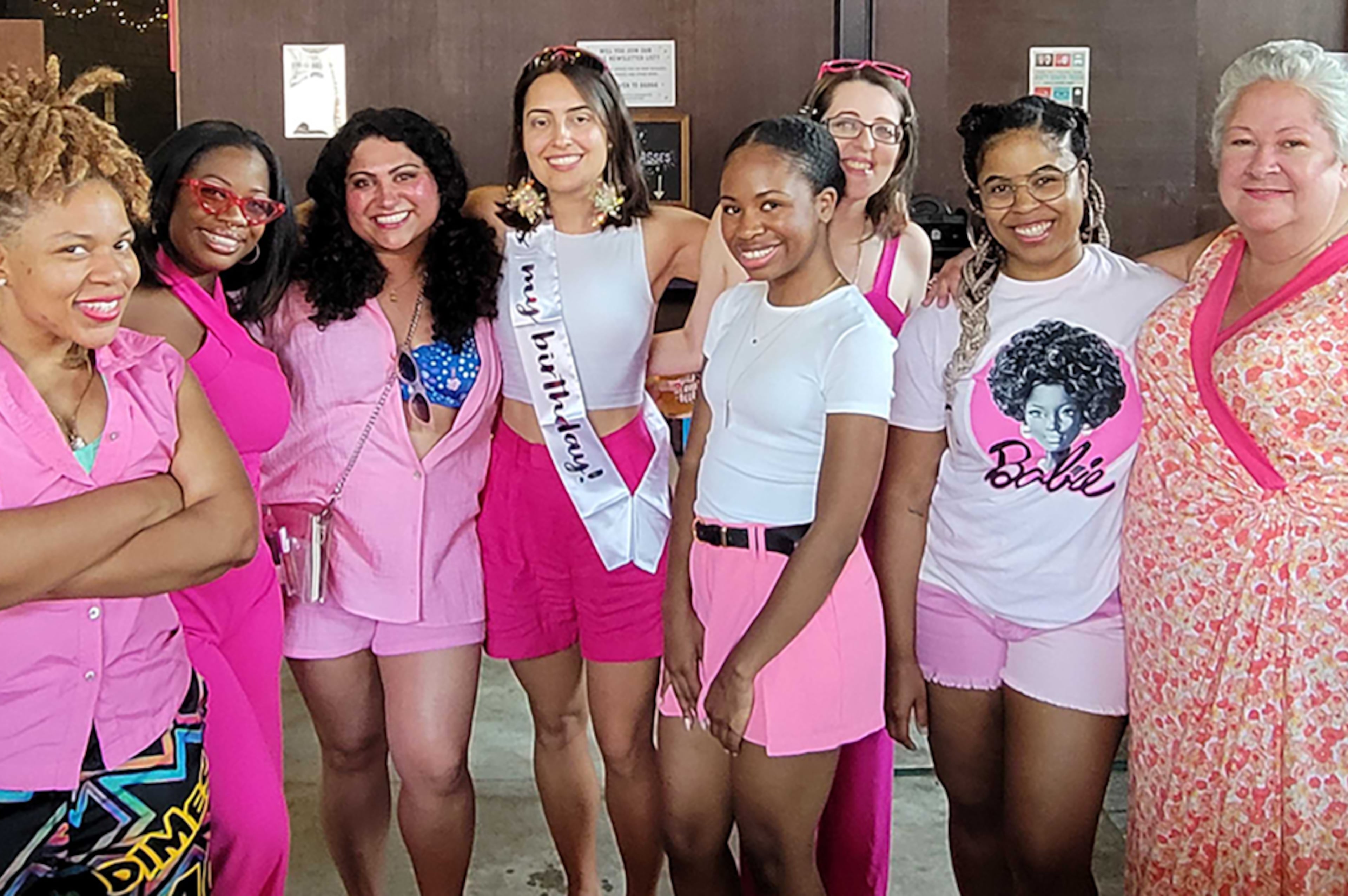Heritage trail restores African American history in Bartow County

During the month of February, The Atlanta Journal-Constitution will publish a daily feature highlighting African American contributions to our state and nation. This is the fifth year of the AJC Sepia Black History Month series. In addition to the daily feature, the AJC also will publish deeper examinations of contemporary African American life each Sunday.
Bartow County has a rich history, and according to Georgia Supreme Court Justice Robert Benham the contributions made by its African American residents were overlooked for decades.
Benham, a Bartow resident who was the first African American justice, appointed to the state’s high court in 1989, approached Bartow County Commissioner Steve Taylor and members of the Cartersville-Bartow Chamber of Commerce to lobby for the preservation of black history in this northwest Georgia county.
» MORE: Full coverage of Black History Month
The efforts undertaken by Benham and other like-minded history preservationists led to the county establishing an African American Heritage Trail, which features 19 sites that are important components of black life in Bartow County.

Some of the most prominent places are the former George Washington Carver Park (now known as Bartow Carver Park), a segregated park on Lake Allatoona known as The Beach by black residents; Black Pioneers Cemetery, a one-acre burial ground for enslaved people and African American residents; the Noble Hill-Wheeler Memorial Center, the first Rosenwald school built for black students in northwest Georgia; and the Kingston grave site of Melvina “Mattie” Shields, an ancestor of former first lady Michelle Obama.
Benham said his idea was met with interest among the county’s movers and shakers.
“There has been enthusiastic support along the way,” he said. “I think people in the Chamber wanted to be able to showcase a complete picture of the county.”

»RELATED: Tulsa Race Riots: White mobs reduced black community to rubble in 1921
Sherri Henshaw, who works in the county’s community development department, spearheaded the project on the government’s side. Henshaw collaborated with the Etowah Valley Historical Society and Bartow History Museum to collect information needed for a brochure.
The brochure, which is housed online by the Emory Center for Digital Scholarship via a Georgia Humanities Grant, contains not only details about historic black sites, but also information about segregation and black entrepreneurship, businesses, grocery stores, restaurants and property owners.
Henshaw said documenting information about sites on the trail has forced the community to have difficult conversations about black history in Bartow County.
“It’s been a topic of conversation that people have become quite proud of,” she added.

»RELATED: Auburn Avenue: The ‘richest Negro street in the world’
The Noble Hill-Wheeler Memorial Center is perhaps the most well-known effort in Bartow County to preserve a part of black history. The Noble Hill School, in the county’s Cassville community, opened in 1924 for the county’s black students. Noble Hill was one of about 5,000 Rosenwald schools built for black students across the rural South with a fund established by philanthropist Julius Rosenwald, a founder of the Sears Roebuck department store company.
The school closed in 1955 when Bartow County schools consolidated Noble Hill and its other black schools to form Bartow County Elementary School, according to its website.

»RELATED: The Niagara Movement: A ‘mighty current’ of Negro activism
Noble Hill stood vacant and unused for more than two decades. In the early 1980s, Dr. Susie Wheeler, an early graduate of the school and educator, launched a five-year campaign to preserve the school and transform it into a heritage museum. The school was placed on the National Register of Historic Places in July 1987 and was restored in 1989, according to the online brochure created for the trail.
The Rev. Louise Young Harris, president of the Noble Hill-Wheeler Memorial Center’s board of directors, said the former school now serves as a museum that documents the education history and culture of Bartow County’s African-American residents. It also hosts visits from authors, other special events and regular programs throughout the year.
Harris said the center is a “beacon” in the community and is one of the few Rosenwald schools that are still standing.

»RELATED: David T. Howard: From Georgia slave to Atlanta philanthropist
“It was built for black children, but it’s now a center for all individuals to come and take part and be a part of what the center is all about,” she said. “It’s such a vital part of the community and has so much history.”
Benham said the African-American Heritage Trail bucks the trend of history routinely neglecting or erasing black contributions. An appreciation of history, the justice said, involves acknowledging the contributions of all people.
“You never get a complete picture, but at least we want to highlight some of the significant contributions of what we feel is a very diverse community,” Benham said.
Throughout February, we’ll spotlight a different African American pioneer in the Living section every day except Fridays. The stories will run in the Metro section that day.
Go to www.ajc.com/black-history-month for more subscriber exclusives on people, places and organizations that have changed the world and to see videos and listen to Spotify playlists on featured African American pioneers.
More Stories
Keep Reading



